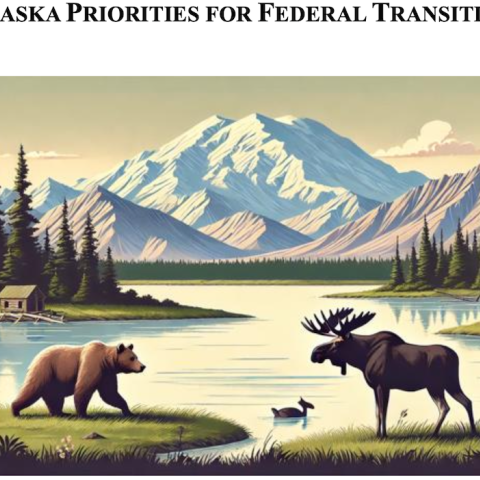
A coalition of hunters and anglers is opposing a 211-mile road in remote Alaska to access mine sites/Hunters and Anglers For The Brooks Range
A road proposed to run 211 miles through a remote section of Alaska to reach a mine site would be detrimental to wildlife, fisheries, and backcountry recreation, according to a group of hunters and anglers.
Trilogy Metals, Inc., a main stakeholder of the road, believes the mine will bring high-paying jobs, training, and educational opportunities to a region suffering from high unemployment and lack of economic opportunity. The road is to be built from the Dalton Highway to reach a mine site near Ambler, a tiny village believed to sit near one of the world's richest copper deposits.
The area encompassing the mining district serves as habitat for salmon, whitefish and sheefish as well as a crucial migration corridor for Alaska's largest caribou herd, the Western Arctic. Approximately 20 miles of the proposed road would cross Park Service lands in the Kobuk River unit of Gates of the Arctic National Preserve. The remainder of the route traverses Bureau of Land Management, state, and Native Corporation lands.
Hunters and Anglers for the Brooks Range, a project of the Theodore Roosevelt Conservation Partnership, is a collective of seasoned hunters, anglers, conservationists, and leading outdoor brands. In a release the group said the Brooks Range offers some of the best fly-in and float hunting and fishing opportunities remaining in the United States.
Supported by 35 leading outdoor businesses, brands, and organizations, Hunters and Anglers for the Brooks Range is committed to conserving the most wild and remote hunting and fishing grounds left in North America. The collective—which includes guides, outfitters, and transporters who operate in the Brooks Range—is urging the Bureau of Land Management to deny the permit for the private industrial corridor.
The BLM recently released a Supplemental Environmental Impact Statement for the proposed Ambler Road, which details more adverse impacts to fish, wildlife, and rural residents than previously acknowledged. The agency is seeking public comments on the project through Dec. 19 and plans to make a final decision in 2024.
“Even in Alaska, a state renowned for its world-class fishing opportunities, the Brooks Range stands apart,” said fly-fishing guide Greg Halbach of Remote Waters in Anchorage, Alaska. Halbach’s small operation offers guided wilderness floats on the Kobuk River, one of the only places in North America to target sheefish—also known as ‘tarpon of the north’ or Inconnu. “There is no question that the Ambler Road would degrade the remote wilderness that makes this area so special.”
Many businesses and organizations affiliated with Hunters & Anglers for the Brooks Range recognize the need to develop America’s domestic mineral resources, and the campaign recommends that new projects be developed closer to existing infrastructure, where the impacts to fish and wildlife can be minimized or mitigated.
“The proposed mines are 211 miles from the nearest road and in some of Alaska’s best hunting and fishing grounds,” said Larry Bartlett, owner of Pristine Ventures, a hunt planning and gear manufacturing company in Fairbanks, Alaska. “The thought of a road crossing this landscape makes me question where the line exists between industry and politics. We have to agree to keep this place wild.”
Construction of the proposed industrial corridor, which would be off-limits to hunters and anglers, would likely disrupt the migratory behavior of some species of big game and fish, the group maintains. One of Alaska’s largest caribou herds, the Western Arctic Herd, roams an expansive area of about 157,000 square miles, approximately the size of Montana. The Ambler Road also would cross nearly 3,000 streams and 11 streams, degrading habitat quality and potentially blocking fish passage.
“The risks of the proposed Ambler Industrial Road far outweigh any potential benefits,” said Jen Leahy, Alaska program manager for the Theodore Roosevelt Conservation Partnership. “The Bureau of Land Management will be hearing from our community, including Hunters and Anglers for the Brooks Range, about why the permit for the Ambler Road should be denied.”
Traveler postscript: Past Traveler articles on the Ambler Road controversy can be found here.




 Support Essential Coverage of Essential Places
Support Essential Coverage of Essential Places







Comments
This is a "no-brainer". Once pristine wild places like this are breached by devopment of any kind it is lost forever and cannot be reclaimed to the state that The Maker intended! Leave it as it is!!